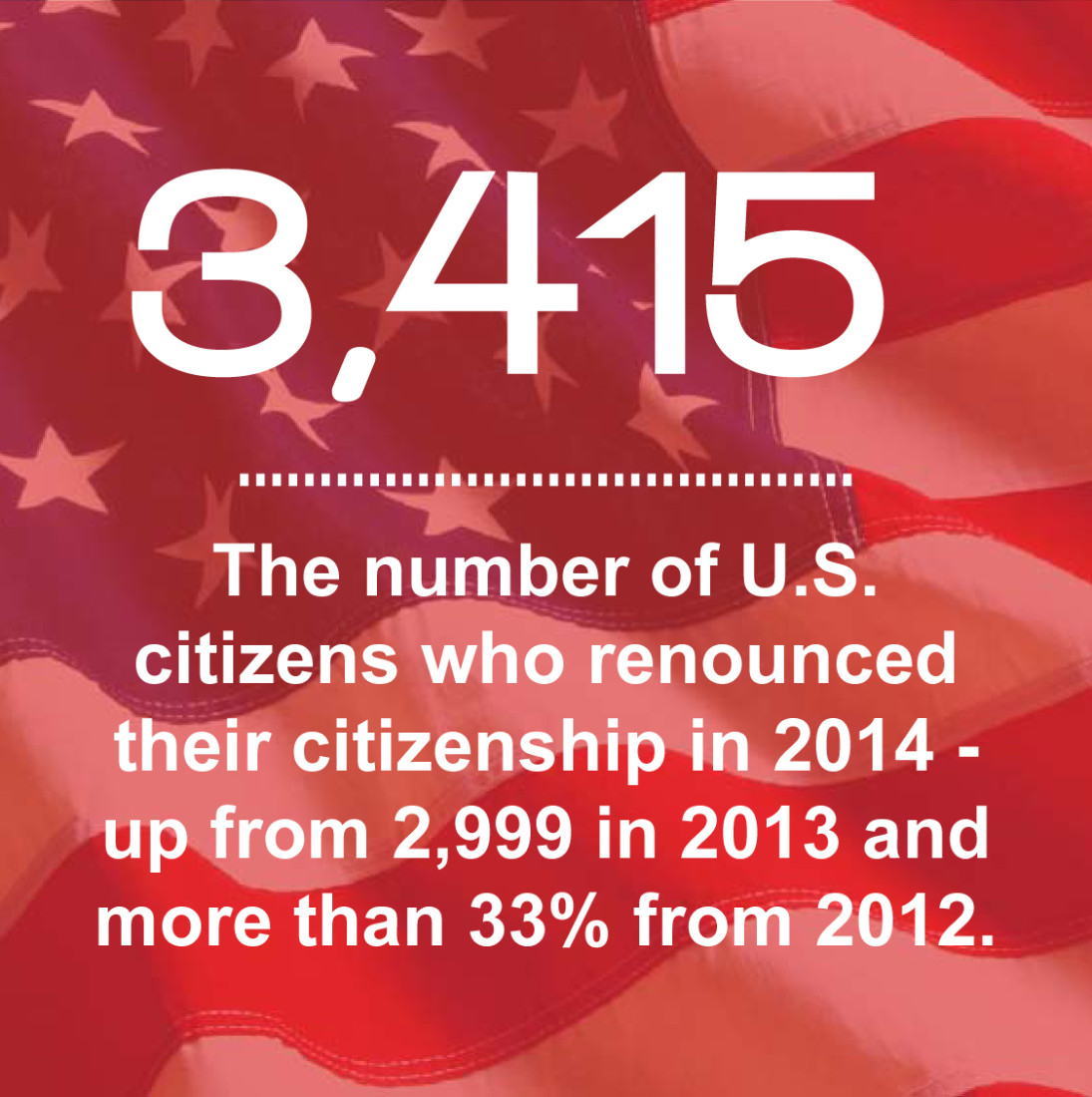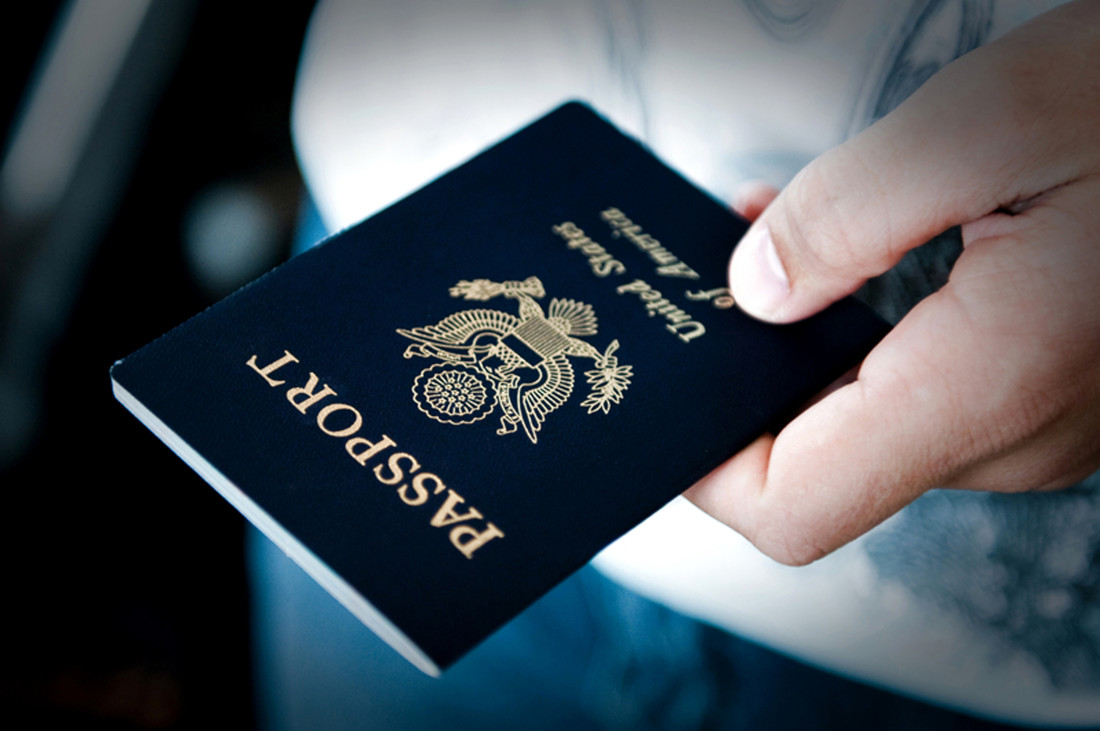U.S. Tax Obligations Prompt Record-High Expatriations
 The U.S. Treasury recently revealed that individuals living abroad, especially high-net-worth individuals, are renouncing their U.S. citizenship in record numbers due to the burdensome tax obligations imposed on expatriates by the federal government. In many cases, the U.S. citizenship of the individuals in question could be considered a technicality—the result of being born in the United States, regardless of where one grew up, or to a parent or grandparent considered a U.S. citizen. London Mayor Boris Johnson, for instance, described his dual British/American citizenship as “an accident of birth,” and has announced plans to renounce the latter, suggesting tax reasons.
The U.S. Treasury recently revealed that individuals living abroad, especially high-net-worth individuals, are renouncing their U.S. citizenship in record numbers due to the burdensome tax obligations imposed on expatriates by the federal government. In many cases, the U.S. citizenship of the individuals in question could be considered a technicality—the result of being born in the United States, regardless of where one grew up, or to a parent or grandparent considered a U.S. citizen. London Mayor Boris Johnson, for instance, described his dual British/American citizenship as “an accident of birth,” and has announced plans to renounce the latter, suggesting tax reasons.
Because of the potentially hefty tax penalties, individuals living outside the United States should be able to confidently answer the question: are you a U.S. citizen residing abroad? If your answer is “yes,” are you sure you know your status regarding both parts of the question? That is, are you a U.S. citizen, and, if you are, do the rules of legal residency determine that you reside outside the United States? It is important that you understand the laws pertaining to residency to answer these questions correctly so that you can address any obligations and seize any opportunities that might apply to you as a U.S. citizen residing abroad. Failure to do so may mean missed tax savings, or worse, put you at risk for sanctions.
Under the Foreign Account Tax Compliance Act (FATCA), banks and other financial organizations ask customers for information related to citizenship, increasing the need to address citizenship questions proactively. If you were born outside of the United States, you may be a citizen as a result of a parent’s citizenship, depending on how U.S. law applies in your particular situation. Frequently, when my colleagues and I are engaged in tax planning for a citizen residing abroad, the process reveals that children and even grandchildren are also U.S. citizens.
Knowing your U.S. citizenship has important tax implications. U.S. citizens residing abroad are subject to U.S. income tax on their worldwide income and gift tax on taxable lifetime transfers. Their estates are subject to U.S. estate tax based on the fair market value of their worldwide assets. With proper planning, the tax burdens can often be reduced.
It may be possible to use a foreign earned income exclusion or foreign tax credits to reduce or virtually eliminate U.S. income tax. If an individual is not in filing compliance, an experienced U.S. tax lawyer can identify the appropriate strategy for coming into compliance and guide the process with the IRS.
Similarly, planning for transfers during lifetime and at death reduces the transfer tax burden. If a U.S. citizen is married to a non-U.S. citizen, special planning is required. In some situations, tax treaties, like the one between Canada and the United States, provide planning opportunities and relief from double taxation.
 In increasing numbers, U.S. citizens residing abroad are deciding to relinquish their U.S. citizenship for non-tax reasons. Some individuals, particularly individuals born outside of the United States who have always lived and worked outside of the United States, simply decide that there is no reason to retain U.S. citizenship. Hodgson Russ attorneys counsel individuals making such a decision on the potential immigration and tax fallout of relinquishing citizenship, including the “exit tax;” the U.S. tax reporting requirements that apply even if there is no “exit tax;” the immigration visas available for potential future travel or work in the United States; and potential exclusion from entry to the United States.
In increasing numbers, U.S. citizens residing abroad are deciding to relinquish their U.S. citizenship for non-tax reasons. Some individuals, particularly individuals born outside of the United States who have always lived and worked outside of the United States, simply decide that there is no reason to retain U.S. citizenship. Hodgson Russ attorneys counsel individuals making such a decision on the potential immigration and tax fallout of relinquishing citizenship, including the “exit tax;” the U.S. tax reporting requirements that apply even if there is no “exit tax;” the immigration visas available for potential future travel or work in the United States; and potential exclusion from entry to the United States.
